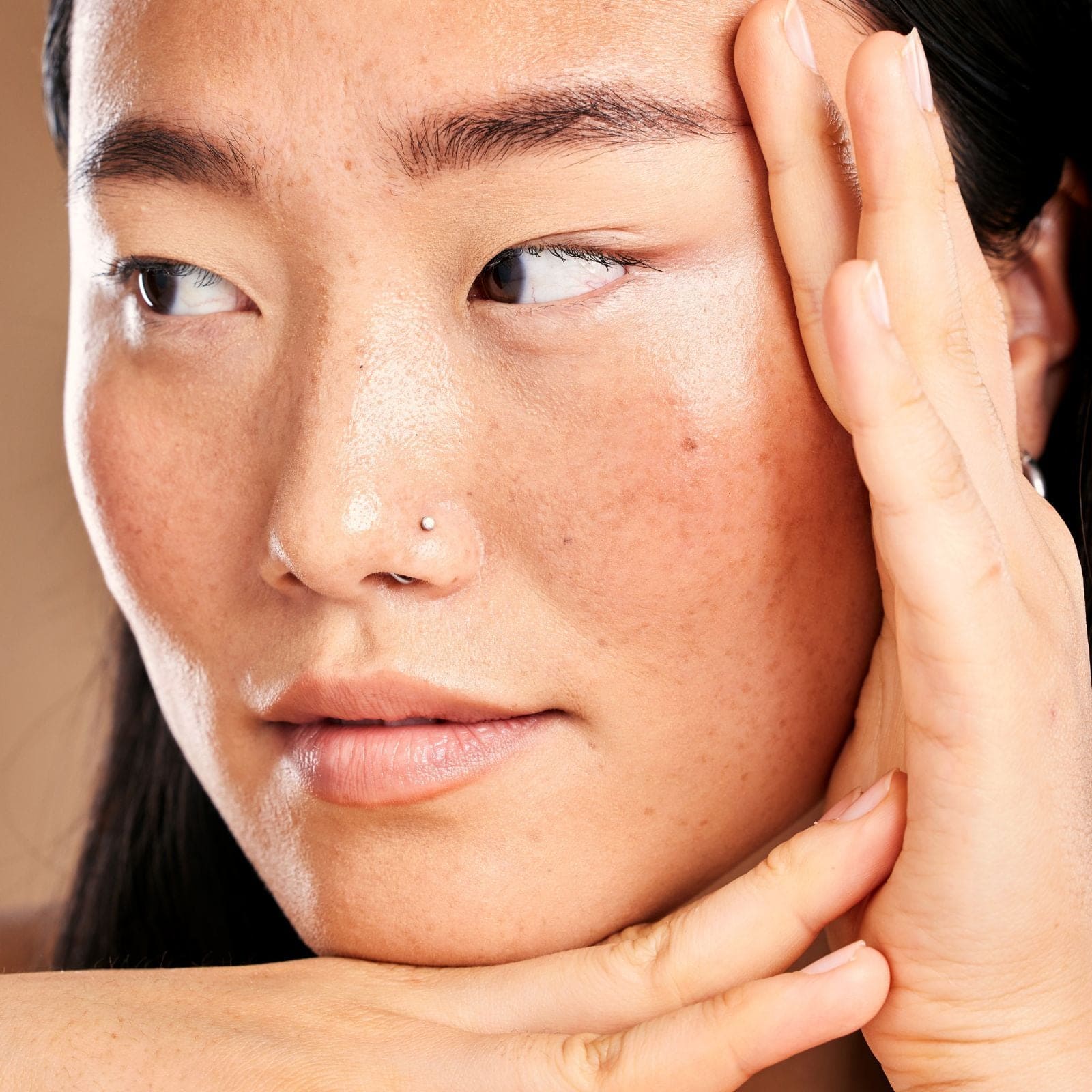WHAT IS HYPERPIGMENTATION?
Hyperpigmentation isn’t a skin condition as such — it’s a term used to describe patches of skin that appear darker than your natural skin tone. These patches can vary in size, from tiny dots to larger areas across your face or body.
TYPES OF HYPERPIGMENTATION
There are a few different types, with the most common being:
Sunspots (aka Age Spots or Liver Spots)
Caused by long-term sun exposure, they appear most often on areas like the face, chest, shoulders, and hands.
Melasma
Often hormone-related and more common in women, melasma can occur during pregnancy or due to hormonal treatments. It usually appears on the face or abdomen.
Post-Inflammatory Hyperpigmentation (PIH)
This follows injury or inflammation, such as acne breakouts, eczema, or even bug bites. It leaves behind darker patches where your skin was healing.
What Causes Hyperpigmentation?
The main culprit is melanin — the pigment that gives skin its colour.
When the skin produces too much melanin, due to triggers like:
- Hormonal changes
- Acne or injury
- UV exposure
- Certain medications
...the result is uneven pigmentation.
How Long Does Hyperpigmentation Last?
Without treatment, hyperpigmentation can take months or even years to fade — or it may never go away fully. With consistent care and the right products, you can start to see results in a few months.
Best Treatments for Hyperpigmentation
1. Exfoliation
Pigmentation is made up of darker skin cells that build up on the surface. Exfoliating removes these dead cells to reveal brighter, more even skin.
Try: Radiance Face Scrub
Formulated with natural exfoliants and nourishing shea butter, it gently buffs away dead skin while soothing and hydrating. Consistent use helps visibly reduce pigmentation.
2. Skincare Support
Nourishing and barrier-supportive products are essential.
Try: Nourish Urself Balm
Originally formulated to help soothe scars, this miracle balm evens out tone and helps calm sensitive, inflamed skin — a game-changer for pigmentation.
Try: Restorative Beauty Oil
This potent blend of Jojoba, Baobab, and Tamanu oils helps calm inflammation, fade acne scars, and nourish blemish-prone skin.
3. Sunscreen (Every Single Day)
Yes, again! Sunscreen is non-negotiable if you’re dealing with pigmentation. UV rays worsen all forms of pigmentation and can undo all the progress you’re making.
Look for:
- Broad spectrum protection (UVA + UVB)
- SPF 50 in Spring/Summer, SPF 30 in Autumn/Winter
- Zinc oxide or titanium dioxide if your skin is sensitive
Reminder: A moisturiser with SPF isn’t enough. Use a separate sunscreen formulated for the face — they’re lightweight and easy to wear daily.
4. See a Dermatologist
If your pigmentation is persistent or worsening, a dermatologist can help identify the cause and recommend stronger treatments.
5. Don’t Pick or Touch!
Picking at spots or scabs increases inflammation, which triggers even more melanin production. Hands off — let your skin heal naturally.
A Word on Prescription Treatments
Some topical medications for pigmentation contain hydroquinone, a strong skin-lightening agent. While it can be effective, long-term use may cause a condition called ochronosis — a bluish-black discolouration of the skin.
Always use under the guidance of a medical professional and explore natural options first.

PRODUCTS TO BEAT PIGMENTATION
Radiance Face Scrub
The Radiance Face Scrub is made with natural ingredients that gently exfoliate and brighten your skin instantly. The nourishing shea butter soothes and hydrates, reducing pigmentation and evening out your skin tone. Exfoliation is key in reducing pigmentation. Adding it into your skincare routine allows it to buff away dead skin cells and dark patches to reveal brighter fresher looking skin.
Nourish Urself Balm
I absolutely love this product! The Nourish Urself Balm is the first product I created in the BAO collection to help with my sensitive skin and scars from previous surgeries. And now my scars are barely there! It’s a miracle-working organic balm that helps even your skin tone.
Restorative Beauty Oil
The Restorative Beauty Oil is made with carefully selected organic plant oils that help calm, brighten and smooth blemish prone skin. The super soft blend of Jojoba, Baobab and Tamunu oils work to reduce inflammation, purify the pores, and improve the look of any acne scarring.
Are Freckles a Form of Hyperpigmentation?
Yes! Freckles are tiny spots of melanin that appear or darken with sun exposure. They’re harmless and more common in lighter skin tones, but like all forms of pigmentation, sun protection is key to keeping them from becoming darker or more widespread.


